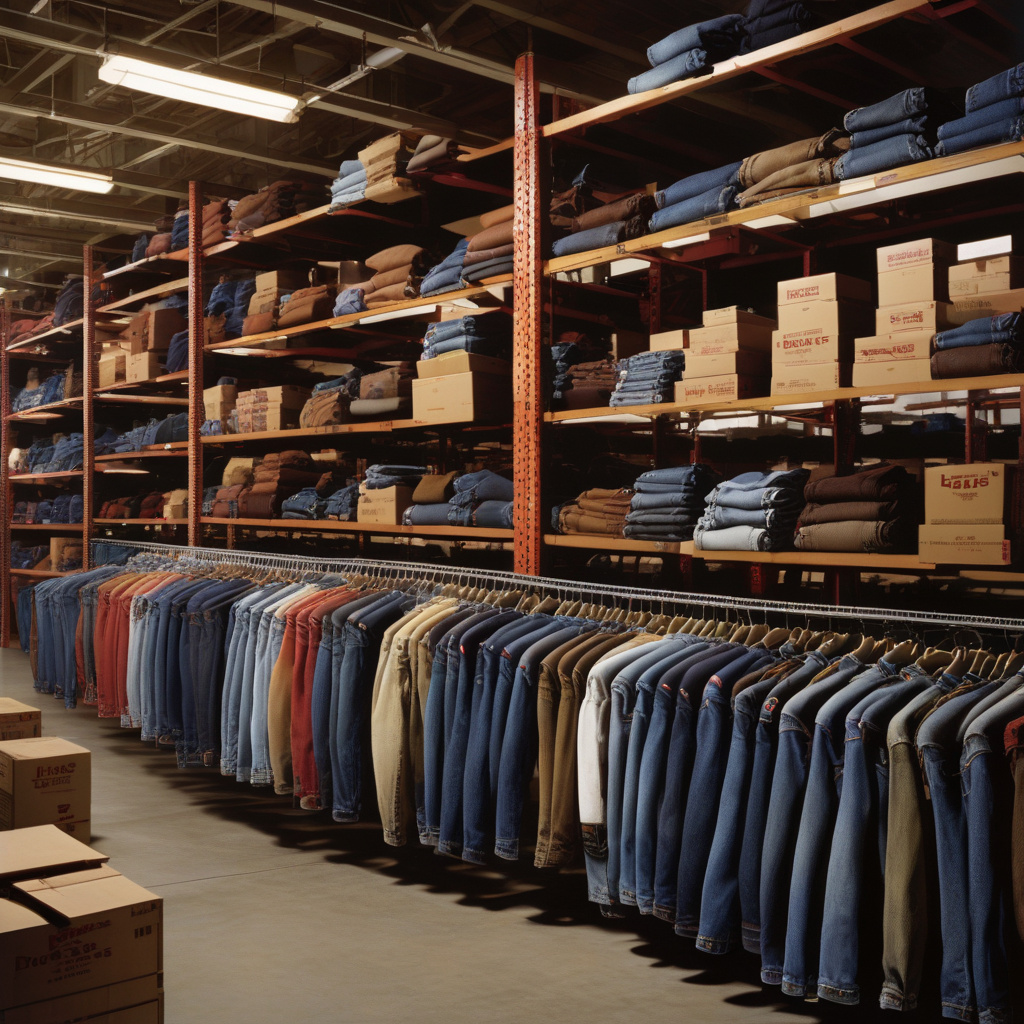Levi’s Boosts Inventory to Navigate Tariff, Shipping Disruptions
In the ever-competitive landscape of the apparel industry, Levi Strauss & Co. is taking proactive steps to ensure its sustainability and profitability amidst significant challenges. The company, renowned for its iconic denim products, is boosting its inventory levels in response to ongoing tariff and shipping disruptions that have affected global supply chains. This strategy not only aims to mitigate the immediate impacts of these disruptions but also positions Levi’s for continued growth in the future.
The apparel sector has faced a barrage of challenges in recent years, particularly in the wake of the COVID-19 pandemic. Tariffs imposed on imports and the growing complexities of shipping logistics have forced many retailers to rethink their inventory management strategies. Levi’s, with its rich heritage dating back to 1850, understands the importance of adaptability in the face of adversity. By increasing inventory levels, Levi’s is preparing to meet consumer demand more effectively while navigating the unpredictable nature of international trade.
The decision to bolster inventory is a strategic move that aligns with Levi’s broader transformation initiatives. The company is not only focused on immediate solutions but is also looking towards the future. This includes a significant consolidation of its distribution center network, aimed at enhancing operational efficiency and reducing costs. Such measures are crucial as they help insulate the brand from long-term impacts associated with tariffs and shipping delays.
For instance, by consolidating distribution centers, Levi’s can streamline its logistics processes. This means reduced transportation costs and improved delivery times, which are essential in an era where consumers expect quick turnaround on their purchases. The ability to respond rapidly to market demands while minimizing operational disruptions can give Levi’s a competitive edge over rivals who may be slower to adapt.
Moreover, with the rise of e-commerce, having a robust inventory system is more vital than ever. Consumers are increasingly shopping online, and a well-stocked inventory allows Levi’s to meet the demands of this growing market segment. By ensuring that popular items are readily available, the company can enhance customer satisfaction and foster brand loyalty. This is particularly important in an age where consumers have a plethora of options at their fingertips.
Levi’s commitment to boosting inventory also reflects a deeper understanding of consumer behavior. The pandemic has altered how people shop, with many opting for convenience and immediacy. As a result, brands that can provide swift access to products are likely to thrive. Levi’s is keenly aware of this shift and is making the necessary adjustments to cater to the evolving preferences of its customers.
In addition to boosting inventory, Levi’s is also investing in technology and data analytics to optimize its supply chain. By leveraging advanced analytics, the company can forecast demand more accurately and adjust its inventory levels accordingly. This proactive approach helps reduce the risk of overstocking or stockouts, both of which can harm profitability and customer satisfaction.
Furthermore, Levi’s efforts to navigate tariff and shipping disruptions are complemented by its long-standing commitment to sustainability and ethical practices. As the company increases its inventory, it is also focused on sourcing materials responsibly and ensuring fair labor practices throughout its supply chain. This dual focus on operational efficiency and social responsibility positions Levi’s as a leader in the apparel industry, appealing to a consumer base that increasingly values sustainability.
The ongoing inventory boost and transformation initiatives are not merely reactive strategies; they are part of a comprehensive plan to ensure Levi’s long-term success. By addressing current challenges head-on while laying the groundwork for future resilience, Levi’s is reinforcing its status as a reputable brand that adapts to the changing landscape of retail.
In conclusion, Levi Strauss & Co.’s decision to boost inventory reflects a strategic response to the complexities of tariffs and shipping disruptions impacting the apparel industry. Through consolidation of distribution centers and a focus on advanced analytics, the company is not only navigating immediate challenges but also positioning itself for sustainable growth. As global supply chains continue to evolve, Levi’s commitment to innovation and customer satisfaction will undoubtedly play a crucial role in its ongoing success.
#Levis #ApparelIndustry #SupplyChain #InventoryManagement #Sustainability
